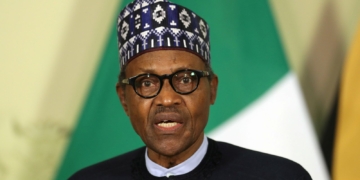Nigeria has embarked on an exciting journey of democratic rule since May 29, 1999, marking the end of 28 years of military governance, with a brief interruption of four years of civil rule under Shehu Shagari and a six-month interim leadership by Ernest Shonekan.
From 1999 to 2025, Nigeria has enjoyed 26 years of democracy, conducting six national and state elections that have welcomed presidents, governors, senators, and lawmakers to their positions.
Olusegun Obasanjo made history by taking the oath of office on May 29, 1999, becoming the President of the Federal Republic of Nigeria. This significant event helped usher the country into democracy, and the date is celebrated as Democracy Day.
In a notable shift, on June 18, 2018, Muhammadu Buhari recognized the June 12, 1993, presidential election as Nigeria’s fairest and freest. Consequently, he designated June 12 as the Nation’s Democracy Day, moving away from the May 29 observation.
This year, many Nigerians, especially those from the Take-It-Back movement, took to the streets in states like Lagos, Oyo, Ondo, and Osun to celebrate Democracy Day, joining forces with activists and students to voice their concerns.
They rallied against challenges such as rising economic struggles, insecurity, and policies they felt were not benefiting the people during President Bola Ahmed Tinubu’s administration.
In Osun, protesters gathered under the Olaiya Bridge and marched to the state secretariat in Abeere, chanting uplifting solidarity songs and waving placards demanding better economic policies, stable electricity, and controlled inflation.
In Oyo, different groups gathered at Mokola Bridge, calling for transparency, public accountability, and improved welfare for all. Similar demonstrations took place in Lagos and Ondo, bringing together passionate voices from Bauchi, Gombe, Edo, Niger, and beyond.
Jimoh Akande expressed in an interview that he felt there wasn’t much to celebrate on Democracy Day, as many citizens believe they haven’t reaped the benefits of democracy. He shared his frustration over the cycle of voting every four years without experiencing meaningful changes.
He highlighted ongoing issues like poor water supply, unreliable electricity, and deteriorating infrastructure, stating that while these problems persist, efforts to resolve them seem inadequate.
Bunmi Adeoye echoed similar sentiments, recalling the issues raised by Moshood Abiola Kasimawo during his 1993 campaign that continue to affect Nigerians today—hunger, poverty, and unemployment. Despite Nigeria’s rich resources, Bunmi feels frustrated that significant progress has not been made.
However, not everyone shares a bleak view. Johnson Aiku emphasized the importance of balancing criticism with recognition of the positive strides Nigeria has made. He believes the country has potential and should focus on constructive outcomes while acknowledging the importance of civic engagement in electing leaders.
Although there is much work to be done, Johnson remains optimistic about Nigeria’s future, expressing his belief in the country and its people. “It’s a time for reflection and hope as Nigeria continues to navigate its journey in democracy,” he stated.




Discussion about this post